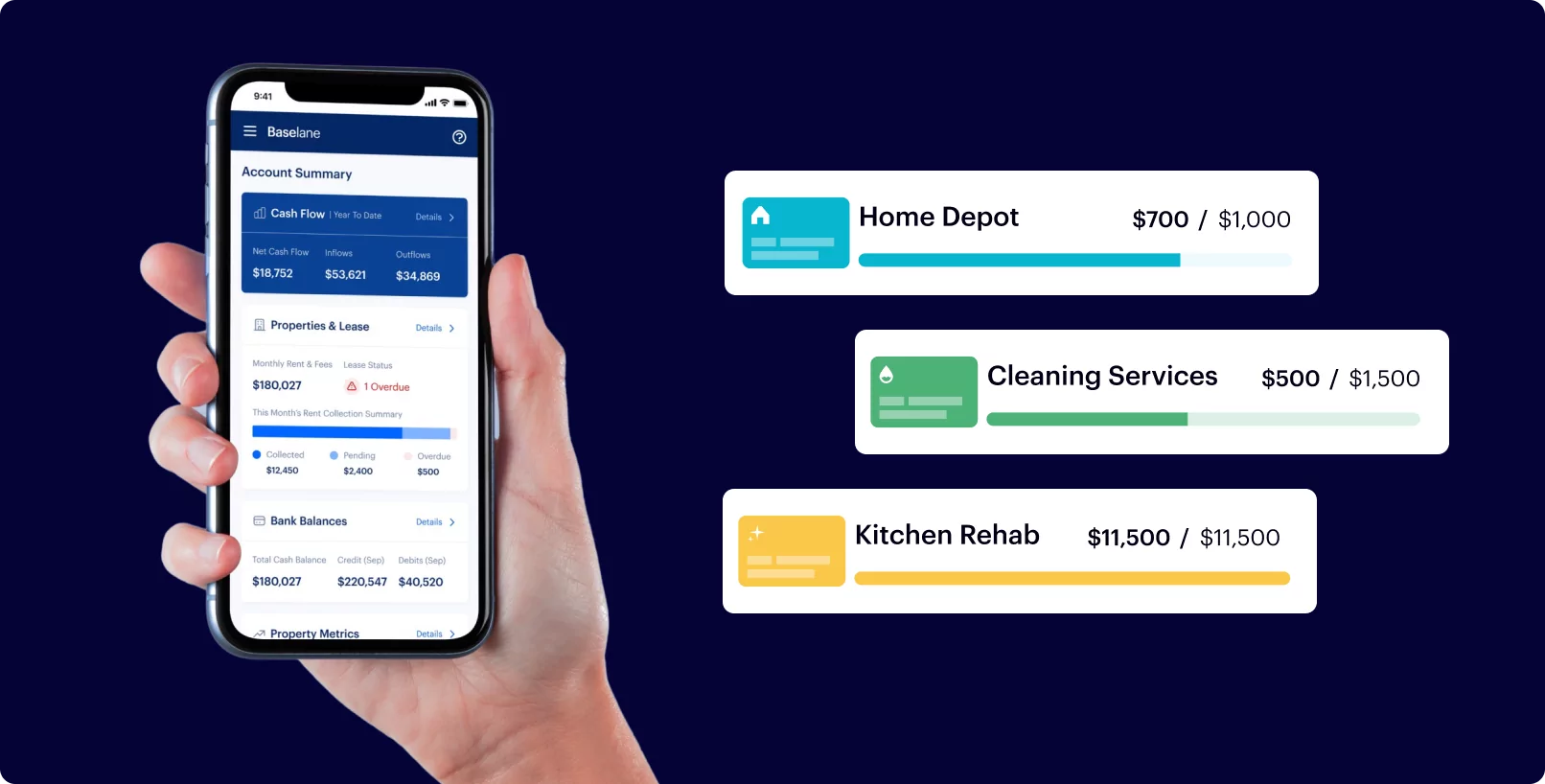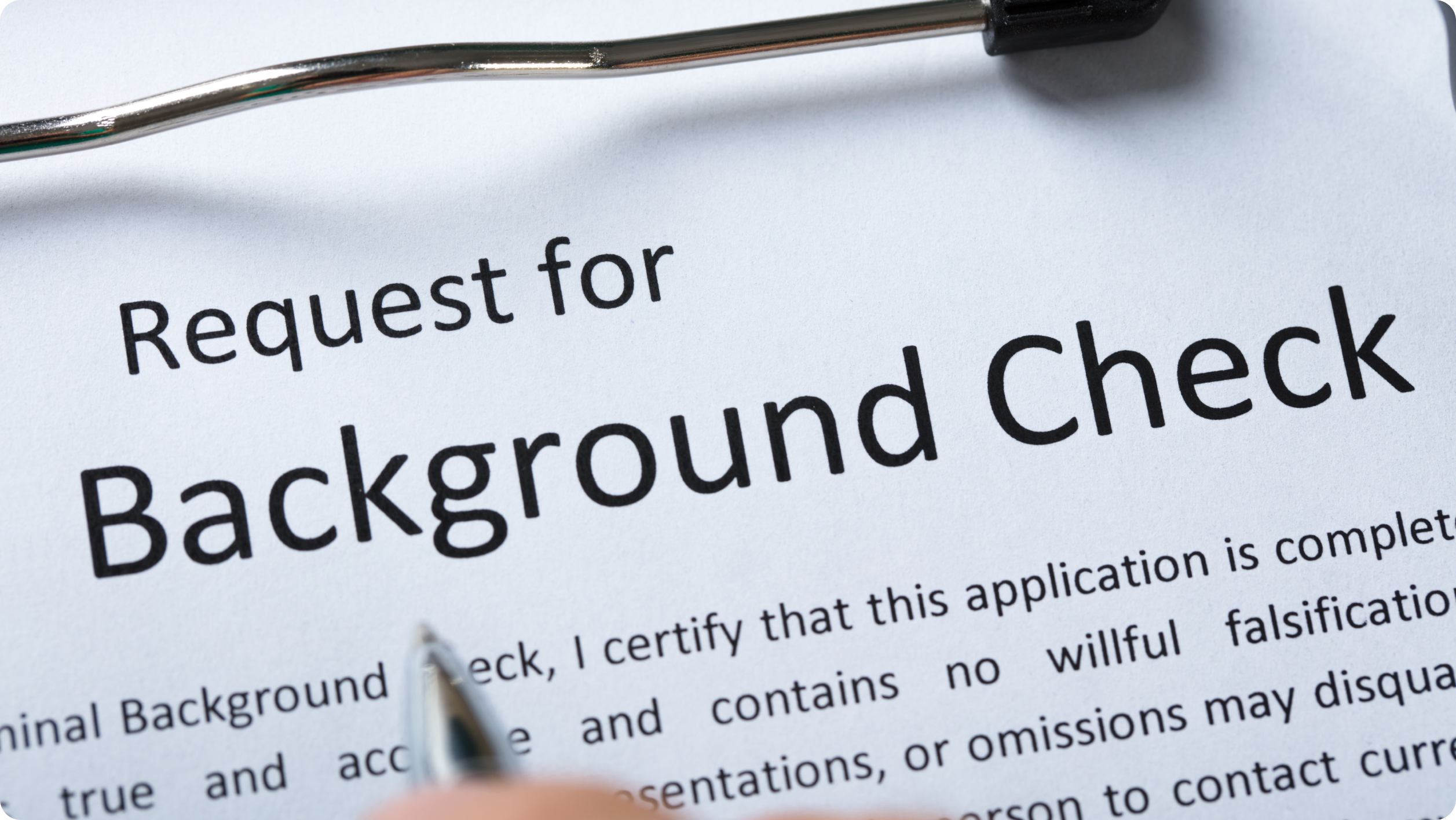Managing rental property finances requires more than just a basic no-fee bank account. As a landlord, you need a system that simplifies tracking each property’s cash flow, offers easy bookkeeping, and handles online rent collection efficiently.
In this blog, you will explore how digital banking meets these specific needs, providing landlords with a streamlined, all-in-one financial solution.
Key Takeaways
- Simplified account management with no minimum deposits or balances.
- Higher interest rates, enhancing returns on security deposits.
- Significant reduction in banking fees and hidden costs.
- Flexibility to open multiple accounts for different properties.
- Integrated bookkeeping tools for efficient financial tracking.
- ACH transfers, ease of moving money between accounts.
- Enhanced security with features like two-factor authentication and encryption.
- Convenient access and management from any device.
- Automated rent collection with real-time notifications of overdue payments.
- Virtual cards and spend controls for secure and organized transactions.
Benefits of Digital Banking
Traditional banks often group rent payments and expenses for multiple properties into one account. You have to organize, separate, and manually log transactions into spreadsheets to understand investment properties’ performance. This lack of separation can also complicate compliance tasks like placing rent in escrow when required by law.
However, landlord-specific banking won’t require multiple logins, making it easier to manage multiple properties from a single dashboard. When comparing a business bank account vs personal bank account, digital banking offers key advantages, such as simplified access, automation, and tools tailored to rental property management. Key benefits of online banking include:
Minimum Deposits or Balances
Traditional banks often ask for an initial deposit, sometimes as low as $25 or as high as $100, to open an account. They may also require you to maintain a balance, usually between $100 and $500, to access certain benefits. This can be a hassle, especially if you’re managing multiple properties.
- No Minimum Requirements: Digital banking, like Baselane, eliminates these concerns. There’s no need for a minimum deposit or balance, making it easier for landlords.
- Better Interest Rates: With digital banking, you can enjoy significantly higher interest rates. For instance, Baselane offers rates 55 times* higher than traditional banks, a big plus when handling security deposits.
Costs and Fees of Digital Banks
Traditional banks typically charge for everything from account setup to monthly maintenance, with banking fees sometimes reaching $35 per transaction. These costs can quickly add up, especially when managing multiple properties.
Ken B, a landlord from Seattle, shares,
“My old bank, and every other bank I’ve had to use, had fees for setting up a new account for each property. If I didn’t want to pay fees, I had to go to a credit union, but their software wasn’t user-friendly. It ended up costing me hundreds of dollars every year.”
Landlords can save time and money by switching to digital banking services. Here’s why:
- Lower Fees with Digital Banks: Switch to a digital banking platform like Baselane, and you’ll see a significant drop in these charges. It offers low or no fees for most services.
- No Hidden Costs: Digital banks stand out for not having hidden fees. This means no unpleasant surprises like setup or annual fees.
- Save More Money: With Baselane, for instance, you enjoy zero monthly fees, no withdrawal charges, and ACH transfers, letting you keep more of your earnings.
- User-Friendly Services: Beyond savings, digital banks provide easy-to-use mobile apps and online banking services, streamlining financial transactions.
Number of Accounts Allowed
As a landlord, managing finances often involves using separate AI bank accounts for each property to keep funds organized. While this strategy improves clarity, it can also lead to higher fees and added complexity. Learning how to get a high- yield savings account can help streamline your setup while maximizing the interest earned on your rental income.
- Limitations with Traditional Banks: Traditional banks usually have a cap on the number of checking accounts you can open. Plus, there’s a limit on FDIC insurance, typically $250,000 per account owner, per institution.
- Flexibility with Digital Banking: Digital banking services like Baselane offer a more flexible solution. Baselane allows you to open multiple landlord banking accounts for each property, partitioned for each unit, with dedicated accounts for security deposits.
- Enhanced Security: With Baselane, you can also securely link external accounts from over 11,000 financial institutions through Plaid, a service used by major apps and banks in the U.S.
This flexibility and connectivity make digital banking platforms an advantageous choice for landlords, simplifying the management of banking transactions across multiple properties.
Bookkeeping Tools Integration
As a landlord, tracking your property investments can be challenging with traditional banks, which often lack built-in bookkeeping tools. Typically, you’d need to rely on expensive third-party apps for these services.
- Direct Integration Need: Without integrated tools, managing your portfolio’s cash flow and expenses becomes more cumbersome.
- Tax Preparation: Simplified bookkeeping is essential for accurately tracking Schedule E deductions and other tax-related details.
Baselane offers the best banking option to make your bookkeeping a breeze. You can track total cash flow, expense details, and Schedule E deductions and get automated insights into your property performance, all for free.
Donovan C. from Tampa, Florida, shares his experience:
“Love that I can look at my whole portfolio at a high level and drill down into specific properties. I can’t believe that some other applications don’t have the accounting feature Baselane has plugged right into the platform.”
Baselane’s integrated approach simplifies financial management, making it a valuable tool for landlords.
Transfer Funds to and From External Accounts
As a landlord, you move money between business bank accounts for rental property all the time, especially when you have to follow state laws about security deposits. Traditional banks often charge for these transfers, with ACH fees ranging from $0.20 to $1.50 per transaction, totaling up to $30 or more monthly.
- Cost of Transfers: These fees can quickly add up, impacting your overall financial management.
- Ease of External Transfers: It’s essential to have a banking service that allows easy and cost-effective transfers.
You can securely connect your external landlord bank accounts and see your property finances in Baselane’s easy-to-use platform without worrying about fees adding up over time.
Virtual Cards and Spend Controls
Virtual cards offer extra security because they don’t expose your primary account info. Most major banks don’t offer virtual cards for business accounts.
You get virtual debit cards with built-in spend controls with a Baselane business banking account for landlords. Automated transaction tagging also simplifies tax prep by property and Schedule E category.
Track Rent Collection
Online rent payments through a traditional financial institution come with a transaction record you can access through your landlord bank statement. They only show when the payment came through and when it was received, but they don’t help much with late rent payment issues.
Baselane puts rent collection on autopilot with reminders and receipts to keep your tenants on track. You can easily track payments, get real-time notifications, and quickly see what payments are overdue.
Security
Wondering if digital banks are as secure as traditional ones? The answer is yes, and often, they offer increased security protocols over brick-and-mortar locations. Like traditional banks, digital banks are FDIC insured, and many even support compliance needs such as tracking the rental deposit escrow rate, so your money is safe and properly managed.
- Advanced Security Features: Digital banks, such as Baselane, use extra security measures like two-factor authentication, end-to-end encryption, and tokens to protect sensitive data.
- Convenient and Safe Access: With Baselane, you can securely manage your funds from any device – computer, tablet, or phone.
- Alerts for Peace of Mind: Digital bank like Baselane also sends automatic alerts for suspicious activity on your account.
Final Thoughts
Having a digital banking account increases convenience for your tenants and makes it easy for you to manage without losing income to extra fees.
You can do a lot more than just manage properties with Baselane’s landlord banking, landlord insurance, tenant screening, and loans.
It offers:
- High yield checking interest (60x national average)*
- 1% cash back on debit card*
- No minimum balance requirements
- Unlimited online high-yield savings accounts
- Hold Security Deposits in separate virtual accounts (“escrow security deposits)
- Integrated bookkeeping and reporting
- Virtual card and spend controls
- Automated rent collection
FAQs
Each rental property should have its own business checking account, or you should set up one baselane banking account with multiple dedicated virtual accounts for each property. These business checking accounts are used for income and expenses and store funds for future capital expenditures and security deposits. Seek a high APY business checking account to maximize your interest income.
A business bank account is a legal requirement for companies. If you're using an LLC, you'll need to open a business account in your company's name. Separating your finances is good practice even if you hold property in your name and do not have an LLC
As a landlord, you should select a bank that allows you to organize property finances easily, properly separate security deposits, and lets you earn rewards (Cashback, High APY). Be mindful of transaction fees, direct rent deposit capability, and online banking services. Additionally, you should look for integration with bookkeeping and reporting.







